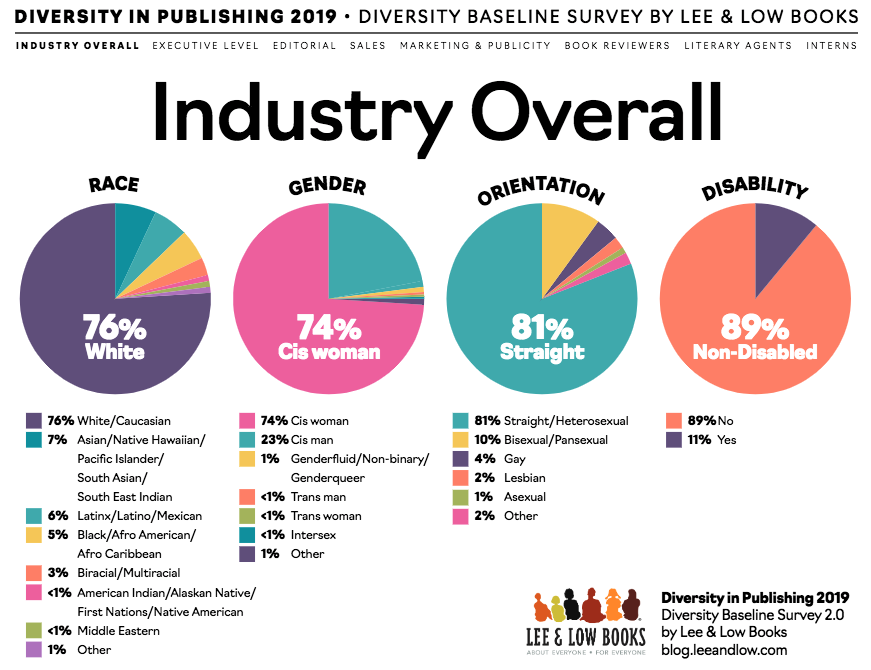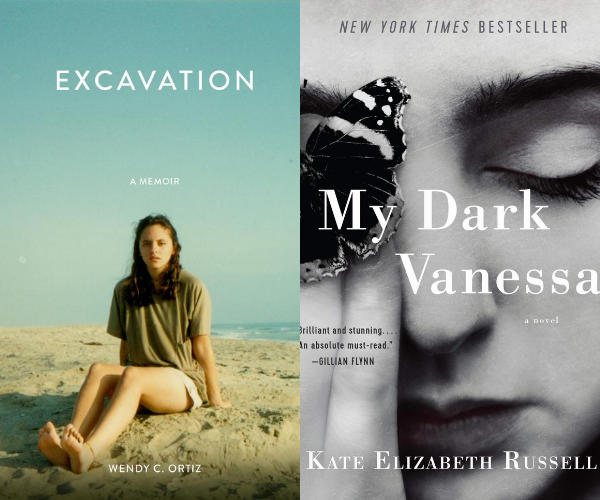I want to begin this blog by recognizing that there are many different articles written about this same topic, specifically the article written by the author herself, Wendy C. Ortiz. My purpose in writing this post is to write from my perspective as an avid reader and a consumer of books who is influenced by the publishing industry. You can read more articles about the controversy surrounding My Dark Vanessa and Excavation from Vox and Vulture.
The Books Themselves
Excavation by Wendy C. Ortiz, published in 2014 by Future Tense Books, is a memoir that details Wendy’s experience growing up as a Latinx teenager in the San Fernando Valley of Los Angeles and a relationship that she had with her English teacher who was fifteen years older than her. Wendy’s teacher encouraged her to continue her passion for writing and in exchange for this support, Wendy and her teacher engaged in a relationship that would put a strain on everything Wendy knew. Excavation writes about how this relationship started due to the teacher’s advances, but also describes how this dangerous relationship impacts Wendy in all of her future relationships both with people and her writing.
My Dark Vanessa by Kate Elizabeth Russell was published in March 2020 by William Morrow and Company and tells the fictional story of a young girl named Vanessa Wye who finds herself in a relationship with her English teacher when he begins showing interest in her writing and her mind that is mature beyond her years. Vanessa falls in love with Jacob Strane, her teacher, and is forced to make choices that will impact her life forever. My Dark Vanessa is told from the perspective of a young Vanessa Wye, as well as the Vanessa in modern time who is asked to speak up about her teacher’s wrongful actions regarding his involvement with multiple students. Vanessa is caught confused about her relationship with Strane and how this unhealthy relationship impacts those she makes today.
Sound similar, right?
Besides the fact that Excavation is a memoir written by a Latinx woman and My Dark Vanessa is a fictional novel written by white woman, the main difference is the amount of publicity the two books garnered.
The (White) Publishing Industry

We are all consumers of books. If you are reading this post, I am going to assume you care about books and the future of publishing in general. As consumers of books, a lot of us (myself included until very recently) are ignorant to how a book goes from an author’s idea to a bound collection of pages. What we are also blind to is the makeup of those who work within the publishing industry itself. Based on a survey given by Lee & Low Books, it was found that in 2019 the publishing industry is still extremely whitewashed with 76% of those who work in the industry being white. What is even more jarring is that the majority of CEOs and representatives who hold high positions in the publishing industry are white and they play a large role in the types of books that make it to the press.
2020, the Year of Controversy?
This all relates to the controversy surrounding Excavation and My Dark Vanessa because when Wendy C. Ortiz was asked to write her story of her illicit relationship with her teacher after submitting a short piece to a local magazine, she struggled to find a publisher to pick up the story. Wendy C. Ortiz was asked to share her story by an agent but when following through faced a great deal of difficulty to find a company that would publish her gut-wrenching story. After some time, Excavation was picked up by Future Tense Books, a small independent publishing company and published in 2014. Throughout her journey to publishing Wendy C. Ortiz documented feedback from the publishers who passed on her manuscript whom boldly noted that “despite Ortiz’s powerful writing, we ultimately felt that it would be difficult to find a wide audience for the memoir” (Read more at Ortiz’s article for Gay Mag).
Fast forward to 2020 when prior to its March release date My Dark Vanessa already had an immense following. Advanced readers copies of Kate Elizabeth Russell’s debut fictional novel were sent to have early reviews to help with its success. Stephen King, among other big name authors, was asked to write a quote for the cover by the publisher, William Morrow and Company. Since its release, My Dark Vanessa has already received over 47,000 ratings on Goodreads with an average star rating of 4.07. In comparison Excavation has just over 1,800 ratings for an average star rating of 3.89.
After the controversy surrounding American Dirt in January when Oprah’s book club selected a book written by a white woman that writes the immigration story of thousands as a “thriller” while also generalizing and including stereotypical details of the immigrant experience, the publishers and readers are trying to do better. American Dirt was the first notable time that readers as a collective stood behind the movement to read and support books by Own Voices authors. White readers especially committed themselves to reading more diversely while publishers committed to publishing more Own Voices books while looking critically at the people they employ and the systems that are in place.
Come March, the drive to read Own Voices books was already buried and forgotten when My Dark Vanessa was released and many failed to do further research about this book that fictionalizes and sensationalizes the relationship between a student and her much older teacher. I am included in the mass of readers who were inattentive to the comparisons drawn between My Dark Vanessa and Excavation until I wrote my review and noticed a few other book reviewers noting the controversy.
So, How Do We Do Better?
How do we as a collective of readers be better when we are directly supporting and consuming books from a publishing industry that sees a white woman’s story as more valuable and palatable?
This is a question I am reflecting on almost daily when I pick up the book I am reading from my nightstand. How did the books on my shelf end up there? What encouraged me to buy this book and bring it into my home? The publishing industry has been flawed from the beginning and I am directly supporting it by consuming books and partnering with certain publishers when reading advanced readers copies. But I, like a lot of people, am at the beginning of my journey towards being more intentional with what I am reading and being critical of how my privilege impacts my thoughts and actions.
There are some really incredible people who have been doing this work much longer than the topic of Own Voices books has been trending, so if you need people to learn from, be sure to read Alex Rosa’s blog post for Feminist Book Club about bookstagrammers who are dedicated to reading diverse literature. As readers, we can all do better by reflecting on the actions we are taking, but dismantling the systems in place within the publishing industry will take a lot more than just changing our reading habits.
Publishers need to be held accountable for the books they are publishing and who they employ. There are systems in place that led to My Dark Vanessa having a much larger book promotion leading up to its release while Excavation struggled to be published. Although both are incredible stories and Kate Elizabeth Russell may have wrote her character of Vanessa Wye with some relation to her own experiences as a teenager, Wendy C. Ortiz, a queer Latinx woman was not afforded the same opportunity with her book because of how the publishing industry values white voices above all.
If you are interested in learning more about holding publishers accountable, please visit the Readers for Equality page on instagram to see updates on how you can contribute and get involved.


Pingback: Literary Magazines Still Grapple with a Lack of Diversity